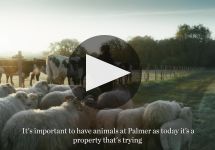Chateau Palmer (Futures Pre-Sale) 2023
- Vinous
-
James
Suckling - Decanter
-
Jeb
Dunnuck -
Robert
Parker



Product Details
Your Rating
Somm Note
Winemaker Notes
Château Palmer has always transcended fashions and trends to instead tap into a single voice: its terroir. The finesse and elegance of its Margaux roots, the softness and sophistication of its texture, the nobility of leather and the gentle caress of velvet. An almost identical blend of Cabernet Sauvignon and Merlot, rounded off with a touch of Petit Verdot, forge the Palmer style. The aromas offer an immersion in a bouquet of flowers, fruit, and spices, enveloped in a fleshy, generous structure.
Blend: 50% Cabernet Sauvignon, 46% Merlot, 4% Petit Verdot
Professional Ratings
-
Vinous
A breathtaking wine, the 2023 Palmer is sensational. Inky, rich and explosive, the 2023 is a real head-turner. Readers will find an extroverted, dense Palmer that is immediately captivating. Here, too, the balance is mind-blowing. Ample and resonant, the 2023 is striking in its beauty. Waves of layered fruit rush out first, building through to the back end with stunning aromatic intensity. There is no other wine like Palmer in Bordeaux. In a lot of ways, it reminds me of a great Pomerol, as heretical as that might sound! If I could pick only one wine to own from the 2023 vintage, Palmer might very well be it. –Antonio Galloni
Barrel Sample: 98-100 -
James Suckling
The vivid density and structure to this is really captivating, with pure blackcurrant character. Full-bodied with very silky, refined and ultra-fine tannins and an exquisite finish. Caresses every inch of the palate. It's seems like it will be large and overpowering, but it's actually ethereal and cloud-like. The tannin quality is so refined and, in a way, weightless.
Barrel Sample: 97-98 -
Decanter
What a Palmer in 2023! Crazy aromatics, full and bright, packed with intense scents of pink and purple flowers, damson fruit - clearly ripe no doubt, but no overt heat with some graphite and liquorice on the nose too and the dried herb Cabernet notes. Rich, layered and voluptuous, one you could use the word opulent to describe, full of flavour and really fruit forward. Not as overtly juicy as some, more harmonious and balanced, the tannins are perfectly integrated with the fruit and acidity with the added plushness that the Merlot gives to the blend. Powered and structured, but less serious than some with great energy, generosity and charm on show in terms of texture but it’s focussed too with a long length. Something very captivating about this. Lots of cool classicism on the finish with a salty, mineral, oyster shell undercurrent. 55% new oak for the first year in barrel then one year in 30hl foudre. 3.75pH. 13% press. 32hl/ha yield.
Barrel Sample: 98 -
Jeb Dunnuck
As to the Grand Vin, the 2023 Château Palmer checks in as 50% Cabernet Sauvignon, 46% Merlot, and 4% Petit Verdot. It too is inky hued but is much more inward, with gorgeous blue fruits, graphite, charcoal, liquid violets, and crushed stone-like minerality. Rich, full-bodied, incredibly concentrated, and powerful on the palate, it has ultra-fine tannins, remarkable purity, and a great, great finish. It's up with the creme de las crema of the vintage and is about as sexy and seamless as the vintage gets. I wouldn't be surprised to see this top out (or surpass) the barrel rating when all is said and done.
Barrel Sample: 96-98 -
Robert Parker's Wine Advocate
Director Thomas Duroux and his team elected to harvest late in pursuit of full maturity, beginning with the Merlot on September 11 and finishing the Cabernet Sauvignon on October 5 to produce a beautiful 2023 Palmer, redolent of cherries, wild berries, rose petals and violets. A blend of 50% Cabernet Sauvignon, 46% Merlot and 4% Petit Verdot, it's medium to full-bodied, plush and enveloping, with a cool core of fruit, succulent acids, ultra-refined tannins and a seamless, complete profile.
Barrel Sample: 96-97
Other Vintages
2024- Vinous
-
James
Suckling -
Robert
Parker
-
James
Suckling -
Robert
Parker -
Jeb
Dunnuck - Decanter
-
Wine
Spectator
-
Wine
Enthusiast - Decanter
-
Jeb
Dunnuck -
Robert
Parker -
James
Suckling -
Wine
Spectator
- Decanter
-
Wine
Enthusiast -
James
Suckling - Vinous
-
Jeb
Dunnuck -
Robert
Parker -
Wine
Spectator
-
James
Suckling - Vinous
- Decanter
-
Jeb
Dunnuck -
Robert
Parker -
Wine
Spectator
- Decanter
-
Wine
Enthusiast -
Jeb
Dunnuck -
Robert
Parker -
Wine
Spectator -
James
Suckling
-
James
Suckling - Decanter
-
Robert
Parker - Vinous
-
Wine
Enthusiast -
Jeb
Dunnuck -
Wine
Spectator
-
Wine
Enthusiast -
Jeb
Dunnuck - Decanter
-
James
Suckling -
Robert
Parker -
Wine
Spectator
-
James
Suckling -
Wine
Enthusiast -
Jeb
Dunnuck -
Robert
Parker -
Wine
Spectator - Decanter
-
Wine
Enthusiast -
James
Suckling -
Jeb
Dunnuck - Decanter
-
Robert
Parker -
Wine
Spectator
-
James
Suckling -
Robert
Parker -
Wine
Enthusiast -
Jeb
Dunnuck -
Wilfred
Wong -
Wine
Spectator
-
Wine
Enthusiast -
James
Suckling -
Robert
Parker -
Wine
Spectator
-
James
Suckling - Decanter
-
Wine
Enthusiast -
Robert
Parker -
Wine
Spectator
-
Jeb
Dunnuck -
Wine
Enthusiast -
James
Suckling -
Robert
Parker - Decanter
-
Wine
Spectator
-
Wine
Enthusiast -
Robert
Parker -
James
Suckling -
Wine
Spectator
-
Wine
Enthusiast -
Wine
Spectator -
Jeb
Dunnuck -
Robert
Parker -
Wine &
Spirits -
Wilfred
Wong
-
Robert
Parker -
Wine
Enthusiast -
Wine &
Spirits -
Wine
Spectator -
James
Suckling - Vinous
-
Robert
Parker -
Wine
Enthusiast - Decanter
-
Wine
Spectator
-
James
Suckling -
Wine
Spectator
-
Robert
Parker
-
Wine
Spectator - Decanter
-
Robert
Parker
-
Robert
Parker
-
Robert
Parker -
Wine
Spectator -
James
Suckling
-
Robert
Parker -
Wine
Spectator
-
Wine
Spectator
-
Wine
Enthusiast
-
Wine
Spectator -
Robert
Parker
-
Robert
Parker -
Wine
Spectator
-
Robert
Parker -
Wine
Spectator
-
Wine
Spectator
-
Wine
Spectator
-
Wine
Spectator
-
Wine
Spectator
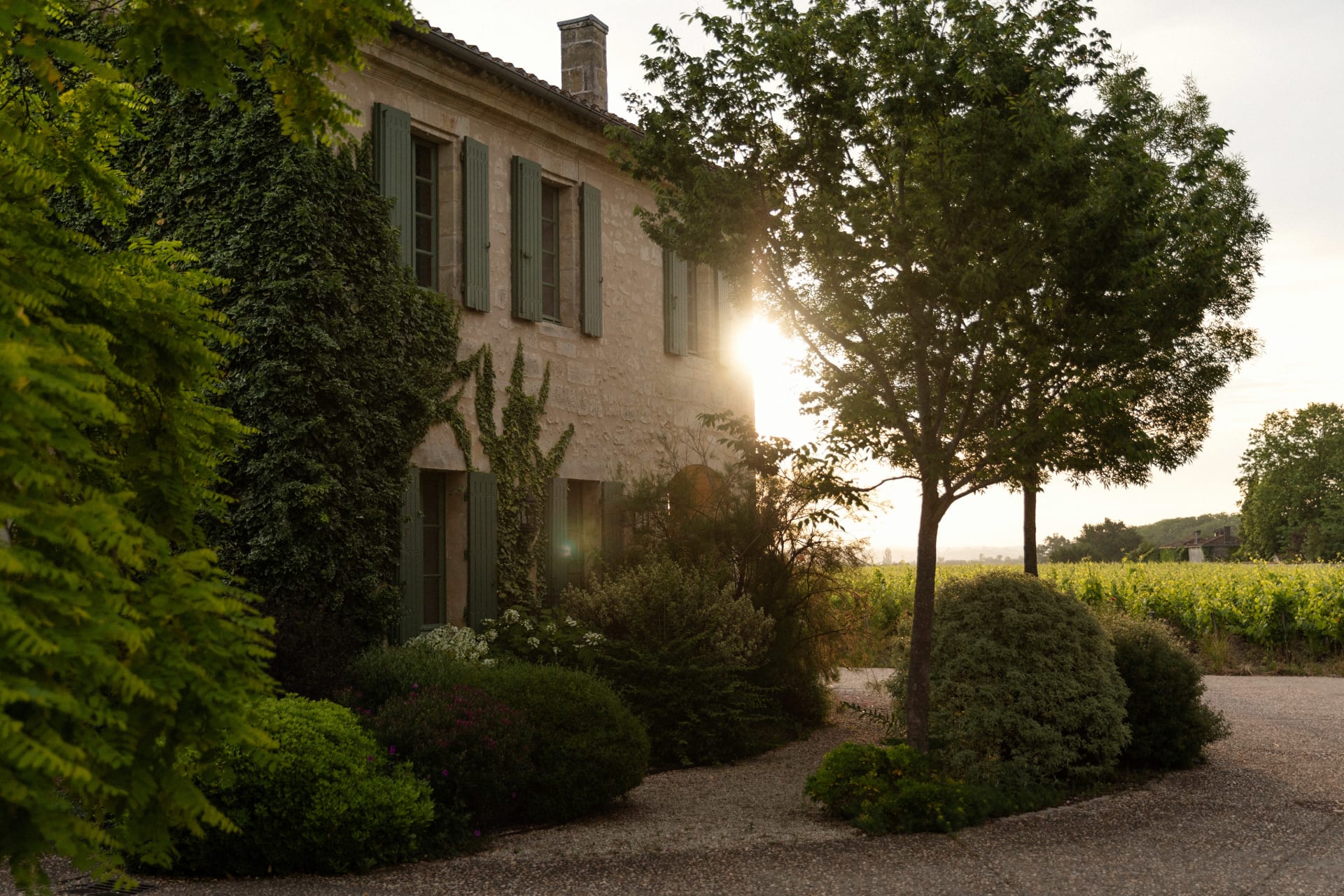

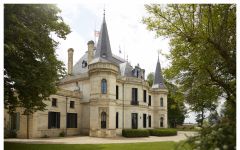


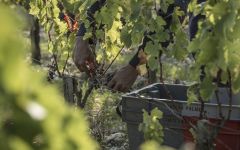

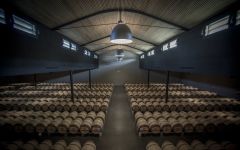
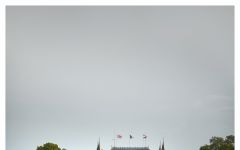
Château Palmer, A History of Passion and Perseverance
Among the mythic wines of the Margaux Appellation, Château Palmer has always stood apart, as instantly recognisable for its midnight blue label as for its inimitable bouquet, an uncommon blend of power and delicacy. It's a strength of character drawn from a fabled terroir, and from an ensemble of vibrant personalities who have forged the estate's identity through history.
Emerging in the 17th century, the estate only became Château Palmer in 1814, when it was acquired by Charles Palmer, a dashing British Major General who instilled his namesake with enough éclat and glamour to see it become renowned throughout London's aristocratic circles. In 1853, the Pereire brothers, among the preeminent financiers of Napoleon III's France, brought the rigour and vision needed for Château Palmer to be ranked among the most prestigious classified growths of the 1855 classification. In 1938, a consortium of four leading families in the Bordeaux wine trade acquired the estate, heralding an era of momentous vintages and deep-rooted stability – indeed, Palmer is still owned by the descendants of two of these families.
Today, the men and women leading Château Palmer into the 21st century are rhyming tradition with innovation in their passionate pursuit to capture the subtleties of one of the world's most legendary terroirs. Palmer's eminently complex wines, combining aromatic richness and extraordinary elegance with a beguiling velvet texture and remarkable ageing potential, are reflections of those spirited efforts and all that distinguishes this 66 ha estate. A veritable mosaic of soils, a unique vineyard planting of equal parts Merlot and Cabernet Sauvignon subtly enriched with Petit Verdot, and pioneering farming techniques that respect nature's exquisite equilibrium, together make these wines transcendent expressions of the Margaux appellation.
In 2004, the shareholders placed Thomas Duroux, a thirty-four-year-old agronomist and oenologist, at the head of Château Palmer. In 2007, Sabrina Pernet was named the château's technical director.
The estate has been certified organic and biodynamic agriculture (Demeter certification) since the 2018 vintage.

One of the world’s most classic and popular styles of red wine, Bordeaux-inspired blends have spread from their homeland in France to nearly every corner of the New World. Typically based on either Cabernet Sauvignon or Merlot and supported by Cabernet Franc, Malbec and Petit Verdot, the best of these are densely hued, fragrant, full of fruit and boast a structure that begs for cellar time. Somm Secret—Blends from Bordeaux are generally earthier compared to those from the New World, which tend to be fruit-dominant.

Silky, seductive and polished are the words that characterize the best wines from Margaux, the most inland appellation of the Médoc on the Left Bank of Bordeaux.
Margaux’s gravel soils are the thinnest of the Médoc, making them most penetrable by vine roots—some reaching down over 23 feet for water. The best sites are said to be on gentle outcrops, or croupes, where more gravel facilitates good drainage.
The Left Bank of Bordeaux subscribes to an arguably outdated method of classification but it is nonetheless important in regards to history of the area. In 1855 the finest chateaux were deemed on the basis of reputation and trading price—at that time. In 1855, Chateau Margaux achieved first growth status, yet it has been Chateau Palmer (officially third growth from the 1855 classification) that has consistently outperformed others throughout the 20th century.
Chateau Margaux in top vintages is capable of producing red Cabernet Sauvignon based wines described as pure, intense, spell-binding, refined and profound with flavors and aromas of black currant, violets, roses, orange peel, black tea and incense.
Other top producers worthy of noting include Chateau Rauzan-Ségla, Lascombes, Brane-Cantenac, and d’Issan, among others.
The best wines of Margaux combine a deep ruby color with a polished structure, concentration and an unrivaled elegance.
